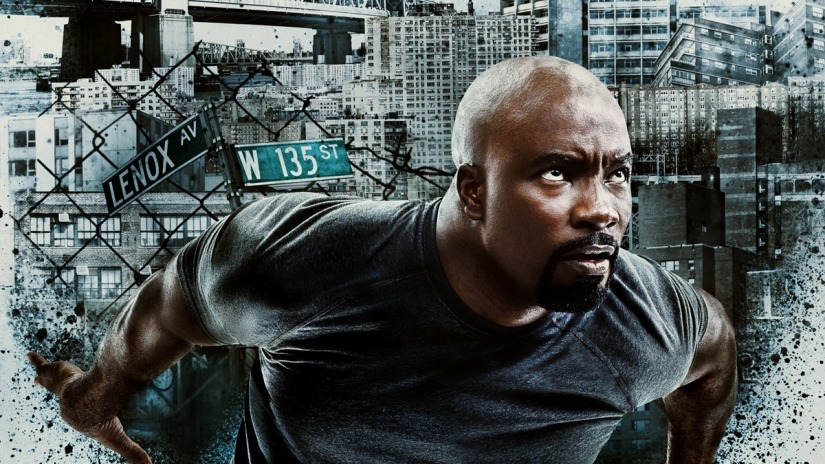You may remember that I wrote recaps of the first five episodes of the second season of Luke Cage. Unfortunately, I just couldn’t bring myself to go any further than that (with recapping – I watched the season through to the end).
So, I thought I’d try to explain why, just in case any of y’all felt like I left you hanging.
Generally, I just flat out couldn’t get into this season. Season one definitely had its problems (particularly after Cottonmouth’s demise). But, it set up some interesting storylines and I was excited to see how season two would improve on playing them out. Unfortunately, season two went in a direction that was pretty unsatisfying to me.
First, there was Luke himself. I certainly don’t expect my Marvel superheroes to be perfect. That would be quite the fool’s errand. But Luke got less and less likeable as the story progressed. And, even though I still had Misty to root for (seriously, Simone Missick should get her own spinoff), the show needs its titular hero to be more than just bulletproof.
I should note that two of the villains ended up being more compelling characters than Luke.
Both Theo Rossi’s Shades and Alfre Woodard’s Mariah turned in rich, multi-dimensional performances. Without them, I’m not sure I would have watched the entire season.
Second, I found the overall plot/conflict to be both aimless and troubling. In season one, the show was able to address some timely issues (even if it addressed them imperfectly) about law enforcement and the black community, because initially Luke was seen more as a criminal than a hero, thanks to his time in prison. Season two blows right past those conversations, setting Luke up as a hero and setting up the police as allies (albeit reluctantly at times). It’s not that simple in real life. It shouldn’t be that simple in fictional Harlem, either.
Also, the focus on Stokes vs. McIver bothered me because it reeked of the conservative dog whistle of black-on-black crime.
But, it was done without tackling any of the nuanced racial and socio-economic components of such issues. Don’t get me wrong. I don’t expect a Marvel television series to be a detailed treatise on racism and classism in America. But I do expect writers to avoid leaning on tired, lazy tropes. I also expect that plots include real stakes. Otherwise, what’s the point of it all? With Luke ending season two as the “Sherriff of Harlem,” sitting in the office once occupied by Mariah and Cottonmouth, and with Bushmaster back in Jamaica, it’s tough to understand why I should have been invested in any of the happenings that came before.
Given some of season one’s negatives, perhaps it’s not surprising that season two also struggled.
So why was I left wanting so much more?
Others have suggested, and I agree, that Black Panther had a profound (and positive) effect on storytelling about racism and injustice. Killmonger forced T’challa AND the audience to consider the causes and effects of racial oppression across the globe. Yes, he was a villain and probably could have and should have used different methods to get his point across. But his beliefs and experiences were powerful and real. And Black Panther allowed Killmonger’s passion, however violently and improperly expressed, to have a real impact on how T’challa and Wakanda would engage with the world going forward. The film demonstrated that you can have direct conversations about difficult issues, even in a fictional context. Unfortunately, Luke Cage didn’t seem to take that lesson to heart.
Finally, around the time I posted recaps for episodes 4 and 5, Mike Colter was in the news for a questionable tweet. He made a “joke” about Pastor Charles H. Ellis III inappropriately touching Ariana Grande at Aretha Franklin’s funeral. Social media is sometimes a tricky business, and we all make mistakes. BUT, this was not the first time that Colter crossed the line into being disrespectful (he previously made disparaging comments regarding acknowledging transgendered individuals). The more I thought about it, the less comfortable I felt focusing on a show and an actor with so many fundamental issues.
At the time I initially wrote this post, I was pondering whether I’d actually tune into a Season 3 of Luke Cage. Welp, turns out I won’t have to worry about it, as the show was subsequently canceled (along with Iron Fist). What are your thoughts? Did you want the show to continue? Or did you think it had run its course? Let me know in the comments!


Comments are closed.